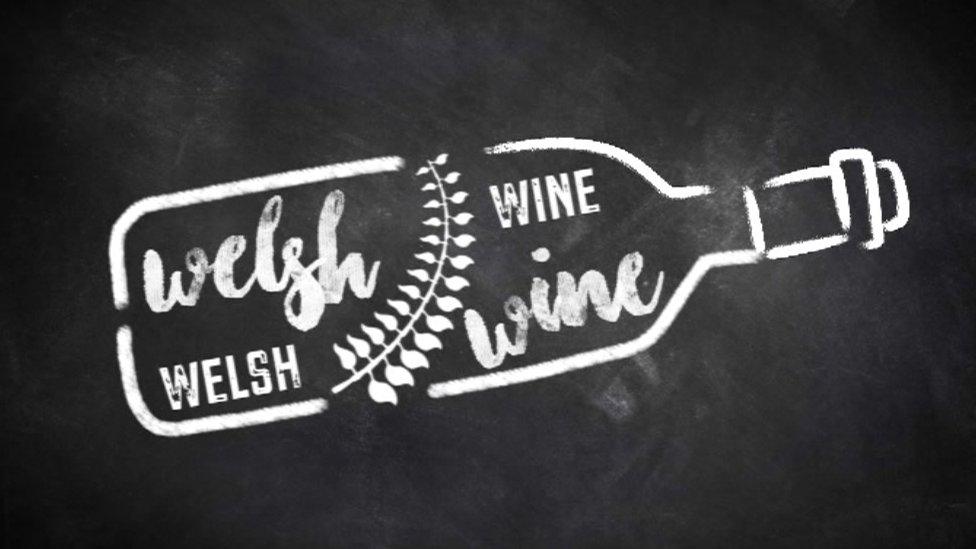How sheep wool is helping vineyard make better wine
Conwy: The farmers supplying wool to make award-winning wine
- Published
A farmer’s novel idea to help deter pests from eating allotment vegetables could help kickstart a revolution in the Welsh wine industry.
Wool fleeces are being put down on grapevines at one north Wales vineyard after they were found to cut the need for chemicals and improved fruit quality.
It followed a chance comment from celebrity TV farmer Gareth Wyn Jones on a visit to the Gwinllan Conwy Vineyard.
After a small-scale trial, the vineyard is now laying fleeces below all its vines.
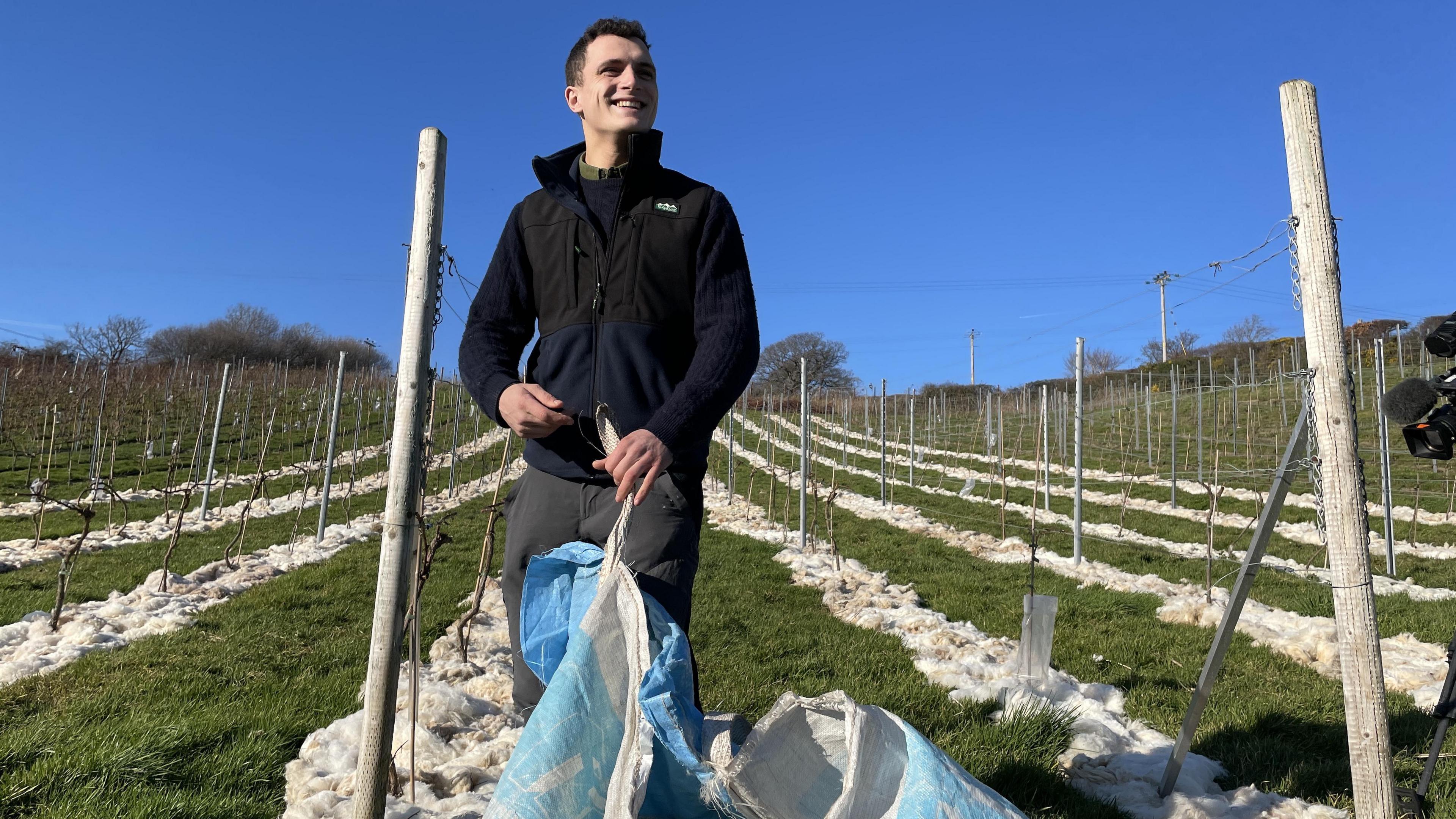
Sior Jones has been supplying the fleeces at Gwinllan Conwy Vineyard
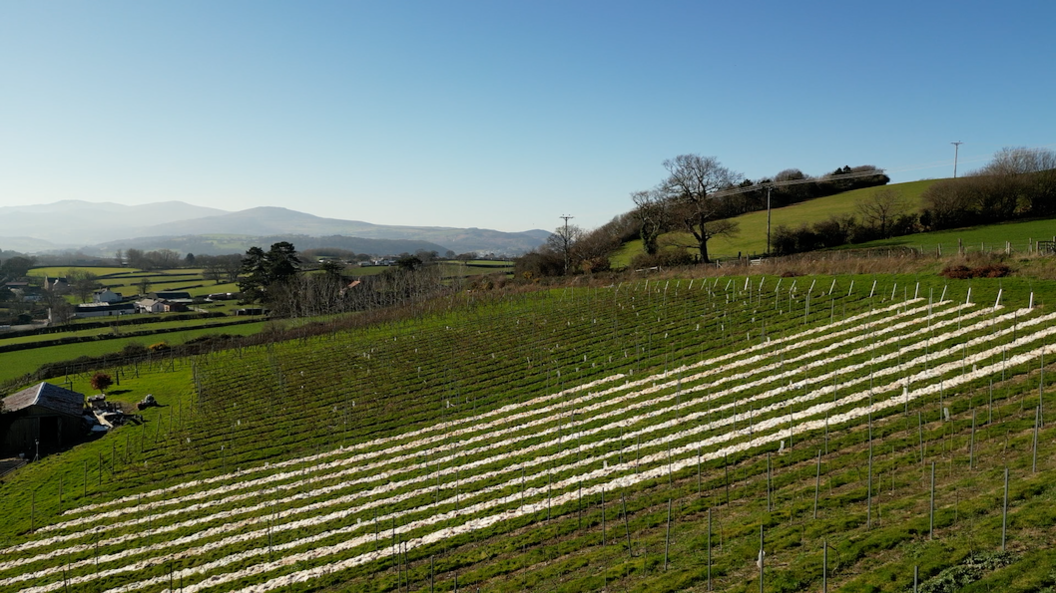
The vineyard is in the process of laying down about 3,000 fleeces across its vine rows
Gwinllan Conwy owner Colin Bennett said initial results from the trial were "phenomenal".
"The reality is, in the end, we get better wine," he said.
"We have got rid of a lot of disease problems without the use of a lot of chemicals."
He hopes it means the vineyard can become entirely organic in years to come.
But the benefits do not stop there at the 1.6 hectare (four acre) vineyard, on a hillside between Conwy and Colwyn Bay.
The winemaker said the woollen fleeces had helped retain moisture, deter pests such as slugs and reflected the sunlight back onto the vines.
It led to the most unexpected - and welcome - discovery.
The vines using fleeces have much riper grapes.
"Riper grapes mean higher alcohol in the wine, and that means more full-bodied wines - so it makes better wine," said Mr Bennett.
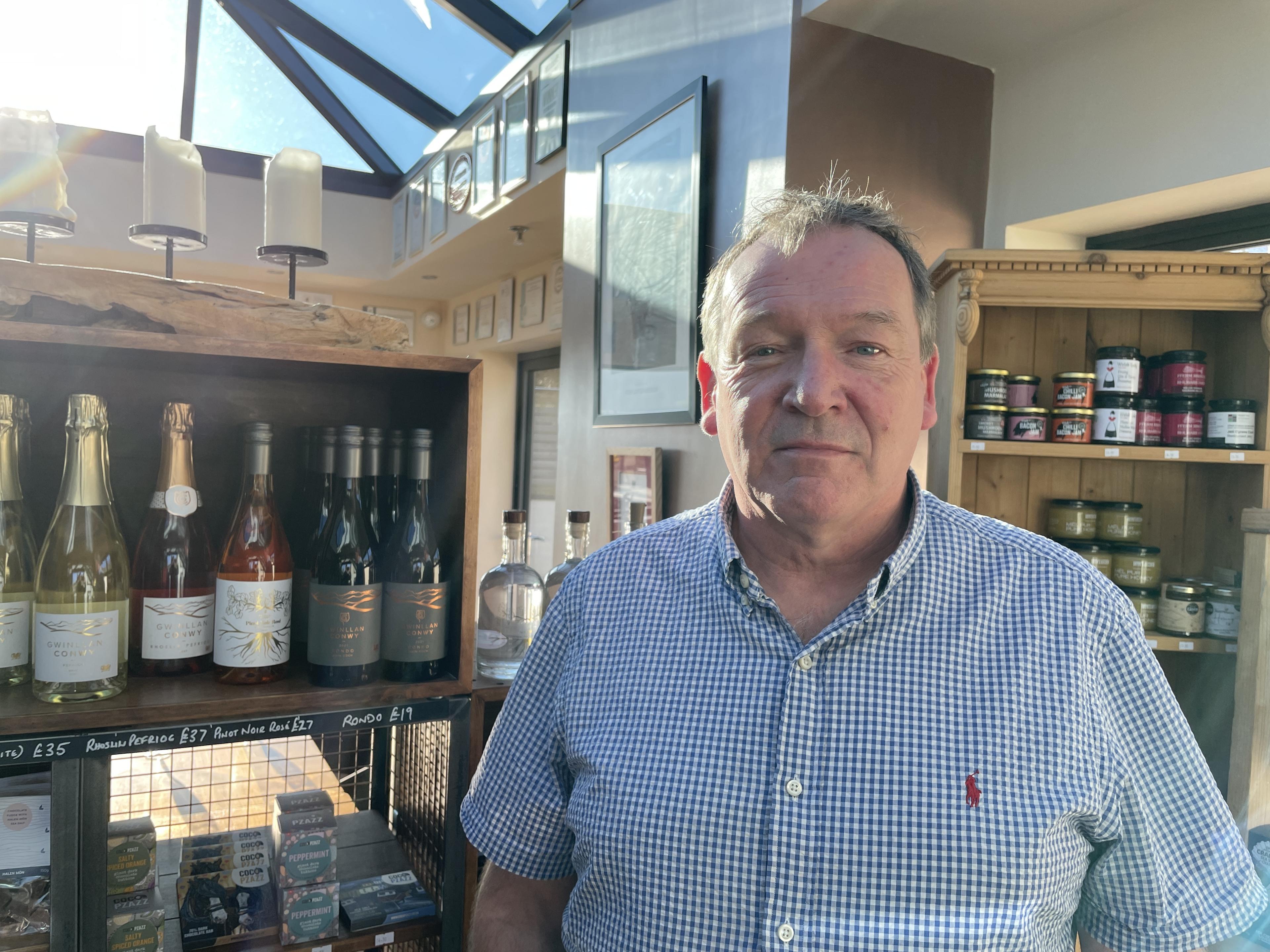
Colin Bennett planted his vineyard in 2012 and now produces up to 10,000 bottles of wine a year
It is thought to be the first vineyard in the UK to try this method of cultivating grapes.
The grower said tests on the trial vines and traditionally-grown grapes showed up to two-percentage points difference in sugar content.
According to the winemaker, in sometimes challenging Welsh weather, it could mean the difference between a great still wine, and one that can be used only for weaker sparkling wines.
"That little bit extra from these fleeces can make all the difference between an OK wine and a real quality wine," added Mr Bennett.
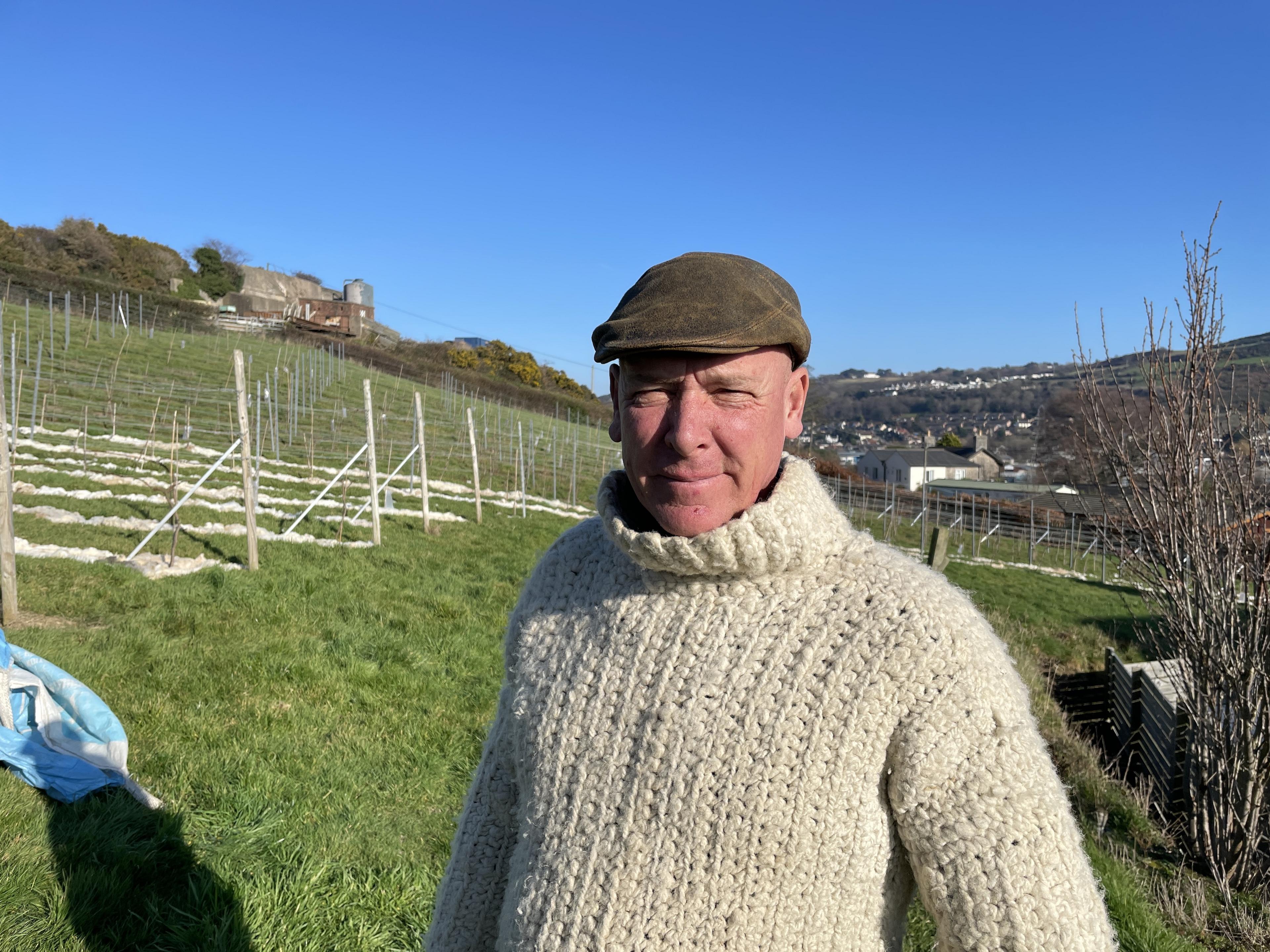
Sheep farmer Gareth Wyn Jones is a familiar face on TV, and suggested the idea to use fleeces
The original suggestion to use wool on vines came from sheep farmer Gareth Wyn Jones, a regular face on TV screens in shows such as the BBC's Countryfile, and Family Farm.
The vineyard owner thought the farmer was joking - but Mr Jones was being deadly serious.
He has been putting wool down at his own vegetable allotment for the best part of a decade to deter slugs and help improve the soil.
"They all looked at me daft," said the farmer, when he first offered the idea.
"The rest is history, and we are seeing now how fantastic this natural product is. Not only for the vineyard, but hopefully for other businesses to develop - orchards, market gardens - this can be utilised for so many businesses."
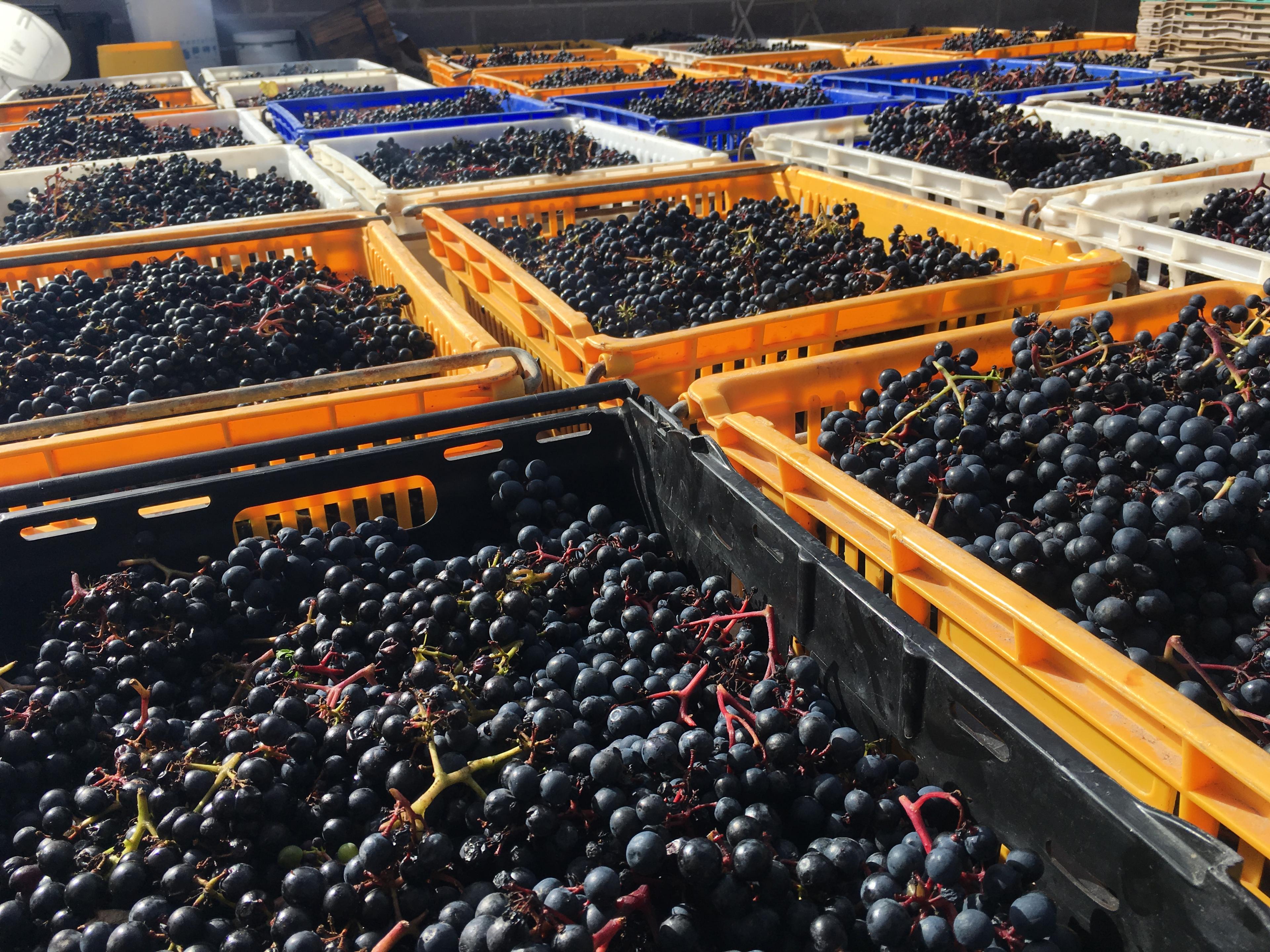
One of the recent year's harvests at Gwinllan Conwy, but it will be well over a year before the 2023 crop is ready to drink
Mr Jones has a vested interest in the success of the Gwinllan project, as it could soon become something of a family business.
His son Sior has helped source the fleeces being used at the vineyard, and hopes it will be a new way to add value to the wool.
Currently, it costs about £1.50 to shear a sheep but the fleeces are virtually worthless, fetching only pennies.
Sior Jones is selling them on to the vineyard for about £1 each.
It means two-thirds of the shearing cost can be recouped, and pushes up the value of remaining Welsh fleeces.
"Most farmers in the UK are shearing at a loss," said Sior.
"If we can take some fleeces off the market, raise awareness of how incredible wool is, and almost bring back traditional values to agriculture."
The vineyard owner said helping the farming industry was a key part of his vision.
"That's the bigger picture," added Colin Bennett.
"I'm paying a fair price for the wool, and there are about 900 other vineyards in England and Wales.
"If we can roll this out to the rest of the UK, it's going to be a massive benefit to sheep farmers."
- Published8 October 2017
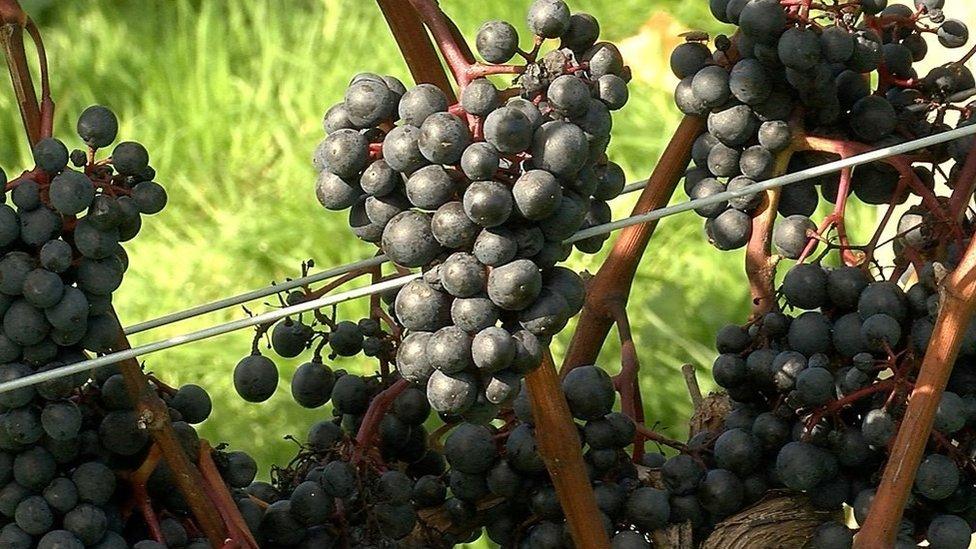
- Published16 October 2022

- Published1 May 2016
